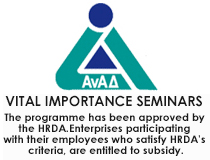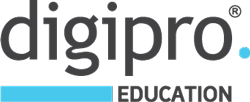Living and Operating in the Cloud: New Age Agile Digital Platforms for SME’s in Hospitality & Travel Sector

Instructor
-
 Sanjay NadkarniDirector of Innovation & Research
Sanjay NadkarniDirector of Innovation & ResearchDr. Sanjay Nadkarni is currently with Arabian Falcon Holding in the UAE. From 2009 to 2022, he was the Director of Innovation and Research and an Associate Professor at the Emirates Academy of Hospitality Management, a strategic business unit of Jumeirah Group Dubai Holding. His work encompasses research, teaching, and advisory activities.
Sanjay’s domain interests are in the convergence space of digital innovation and sustainability in the services sector. His portfolio comprises academic and applied research, advisory and consultancy assignments for corporate, government and multilateral agencies. His pedagogic practice includes visiting professorships at premier academic institutions in Asia and Europe. He is also a verified Dubai Futures Research Contributor and a Non-resident Fellow of Trends Research & AdvisoryThink Tank. The recognition of his work is reflected in the awards and citations of merit he has received.
Sanjay’s focus is on developing and co-creating applied research and strategy frameworks that have tangible impact on industry and society. He is passionate about using innovation frameworks for leveraging Industry 4.0 and democratizing AI and data science to benefit small & micro-businesses and enjoys mentoring in digital and social entrepreneurship.

Recent Participants


Date
- Mar 29 - 30 2021
- Expired!
Cost
- Fully Subsidized
Location
The adoption of digital platforms in the post Covid-19 recovery phase is witnessing accelerated growth across all sectors of the economy. Given the significance of hospitality and tourism to Cyprus’s economy dominated by micro small and medium businesses (MSMBs), the overall competitiveness and growth of this sector which have been strongly impacted by Covid-19, are an enabler for socio-economic development by way of generating tourism Euros and employment opportunities. Setting up and operating enterprises across the hospitality and tourism value chain can be capital intensive; hence it is imperative that the returns on investment are credible enough to ensure long term viability, particularly when faced with challenging micro and macroeconomic conditions.
The growth drivers of the hospitality and tourism sector of an economy which predominantly includes bars, cafés, car rentals, event organisers, hotels, holiday rentals, tour operators and travel agents are increasingly influenced by the ability to adapt to and adopt digital disruption which has impacted every aspect of human activity. Putting it into perspective, digital disruption on the back on Industry 4.0 is an inherent change in how businesses are able to deliver value to its customers by leveraging the opportunities of a mix of innovative digital tools and their accelerating impact on the ability and necessity to challenge the status quo in a hyper competitive and hyper personalized environment. Technology behemoths have traditionally been monetizing this opportunity by focussing on corporate, transnational clients. The micro small and medium businesses (MSMBs) have at best been collateral beneficiaries, but usually not the primary target market, though this situation is rapidly changing thanks to growing internet speeds and agile cloud based tools coupled with falling costs and complexities of adoption.
Given the fragmented landscape of the hospitality and tourism industry in Cyprus, deploying these new age agile cloud based and hybrid digital tools and assets provides an unprecedented opportunity for MSMBs in this sector for gaining operational efficiencies and driving profitability in a sustainable manner. In practical terms, this need translates into enabling Cyprus’s hospitality and tourism related businesses to adopt user-friendly and cost-effective digital platforms and cloud based tools for enhancing their business practices to deliver exceptional customer value which in turn will make a significant contribution to Cyprus’s service driven economy by providing substantial entrepreneurial as well as employment opportunities.
The primary target segments for this seminar are the private sector owners, managers and supervisory staff of micro, small and medium businesses in the hospitality and tourism sector including the sub-verticals comprising of bars, cafés, car rentals, event organisers, hotels, holiday rentals, tour operators and travel agents.
The key takeaway from the seminar for the participants’ benefit will be the ability to effectively leverage the new age digital platforms on the cloud while remaining device agnostic for driving value in their day-to-day operations.
Particularly, this expert seminar will offer valuable insight to industry stakeholders who deal with administration, revenue and marketing operations.
In the post Covid-19 scenario, digital transformation has assumed critical importance for the survival of businesses. In this context, the high-level objectives of this expert seminar are to enable owners, operators and managers in the hospitality and allied sectors to (i) gain general understanding of cloud computing and alternative utility software (ii) deploy appropriate platforms and solutions most suited for their businesses in order to enhance profitability.
The specific objectives pertaining to knowledge, skills and attitude are as follows:
Knowledge related objectives
- Recognize the pros and cons of cloud-based applications.
- Identify the trending digital platforms for creating, curating and storing digital content.
- Analyze the resource implications and financial impact of deploying cloud solutions and on-site alternatives to mainstream software applications
- Revise dependence on third-party providers and agents for installing and updating the latest version of the software, manage email and file servers and run backups of their business-critical data.
Skills related objectives
- Use the Google eco-system for daily business computing/office application utility tasks.
- Operate cloud-based platforms for capturing and analyzing customer satisfaction data with live dashboards.
- Chart real-time macro-level data for informed decision making.
- Set up productivity protocols for sharing documents that exist on cloud platforms with internal and external stakeholders.
- Illustrate linkage between separate utility apps and software (e.g. email client, calendar, word processing, spreadsheets, design/drawing tools) into one a single multi-application cloud platform making it far more user-friendly to work with the digital interfaces, in particular for the digitally-not so savvy users among owners, managers and employees.
Attitude related objectives
- Adopt the right attitudes about the importance of device neutral cloud tools.
- Advocate a future thinking culture among internal stakeholders of the business
- Recommend the right culture in the organization that will build and support confidence to self-manage critical digital assets, independent of third party agents.
In-house visits objectives
The overarching objective of this component is to assist the hospitality MSMBs to adopt appropriate cloud based platforms best suited to their operational context. This goal will be achieved by way of an audit of the business’s existing level of digital deployment and IT software and hardware landscape. The key themes include, though are not restricted to, awareness, best-fit, costs and challenges of digital platforms. The specific objectives towards this end are to:
- Perform a situational analysis of specific Digital/IT issues pertaining to the business
- Audit existing processes in operations and strategy from a digital transformation standpoint
- Audit existing digital capacity and practices in the context of business productivity and costs
- Audit digital assets including industry specific software (e.g. PMS/PoS) and evaluate compatibility with generic utility applications/software
- Recommend a series of action points based on the afore-listed audit points to enhance business efficiency and stakeholder value addition
The seminar content is informed by current trends and research in the application of cloud computing and digital disruption for small scale businesses with a specific focus on the hospitality and tourism verticals. The key themes include, though are not restricted to gaining broad exposure to trending platforms and gauging industry-specific needs for driving cost reductions, revenue optimization, guest satisfaction, engagement and loyalty.
Product and service differentiation will be contingent on the ability to leverage agile digital tools for a multitude of sector-specific applications.
During the seminar, there will be demonstrations on how to use cloud-based platforms that include utility applications, content management systems for websites, data visualization and predictive analytics tools for structured and unstructured data. In addition to hands-on workshops embedded in the seminar, relevant case studies and industry best practices will be discussed to reinforce the advantages of these new-age digital platforms.
Conclusively, this authoritative and comprehensive seminar delivers tools and skillsets that enable participants to appreciate the emerging digital trends and their impact on the hospitality and tourism sector and its allied verticals.
The event is finished.

SUBSIDY, ATTENDANCE, AND CANCELLATION POLICY
HRDA Subsidy and Seminar Attendance
- A company’s participant is eligible for a subsidy when their Social Insurance and Industrial Training contributions have been settled in full by the time of registration/seminar. In case of ineligibility/disqualification, the company will be invoiced the full amount per participant.
- A company’s participant is eligible for a subsidy if he/she completes an obligatory attendance of 75% or more (both during seminar and company visit). In case of failure to complete the attendance, the company will be invoiced the full amount, per participant.
Cancellation and Substitution Policy
- Cancellations can be accepted up to 5 working days prior to the seminar without penalties. For any cancellations received after the deadline (or no-shows), the company will be invoiced the full amount per participant.
- Substitutions can be accepted any time prior to the seminar without penalties.
- Τhroughout the seminar participants must have their camera and microphone open, for better communication and as defined by the specifications of HRDA otherwise participants will not be approved by HRDA.

